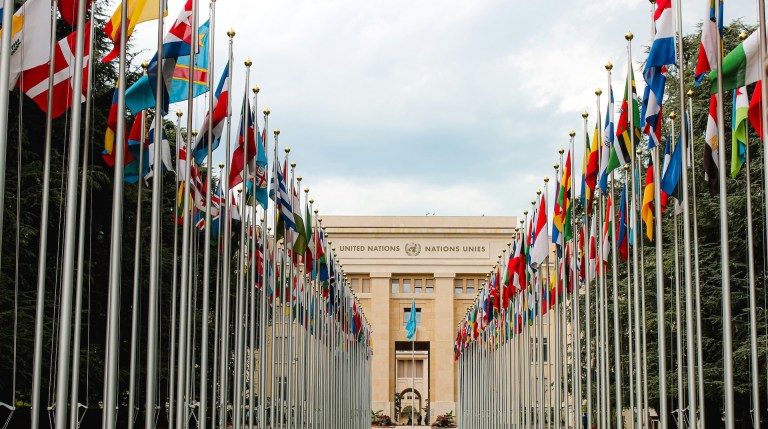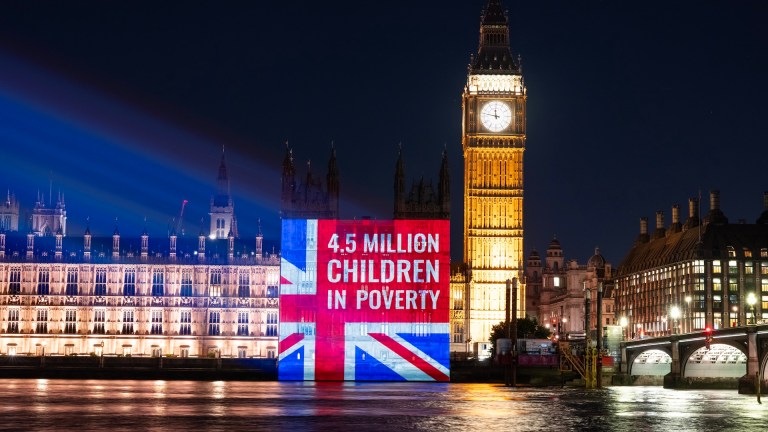Here’s everything you need to know about how to apply for free school meals, whether your child is eligible, if they are available over the school holidays and how the scheme differs depending on where you live.
Who gets free school meals in the UK?
Whether your child is eligible for free school meals depends on their age, where you live and your income. Your child may be eligible if you are claiming any of the following benefits:
- Income support
- Income-based jobseeker’s allowance
- The guaranteed element of pension credit
- Income-related employment and support allowance
- Working tax credit run-on – paid for four weeks after stopping work
- Support under Part VI of the Immigration and Asylum Act 1999
- Child tax credit, as long as you don’t also receive working tax credit and earn no more than £16,190 (£17,005 in Scotland). In Scotland, you can get free meals if you get child tax credit and working tax credit, but you have to be earning less than £7,920
- Universal credit, if someone applied since April 2018 and their income is less than £7,400 a year (after tax and not including benefits). If someone applied for UC before then, there is no income threshold. In Scotland, your monthly earned income on UC must be lower than £660. In Northern Ireland, the threshold is almost twice that of England and Scotland at £14,000.
Children who receive any of these benefits themselves are also eligible for school lunches. If you are 16 to 18 and in receipt of any of the benefits in your own right, you can claim free meals.
If your child is not eligible for free meals based on your income, they may still get universal meals if they are under a certain age and living in certain parts of the UK.
Who gets universal free school meals?
Many of the youngest children in the UK are also eligible for free school meals regardless of their parents’ income.
In England, all children in reception, year one and year two are guaranteed a free lunch (and sometimes milk) as part of the universal infant free school meals scheme.
Advertising helps fund Big Issue’s mission to end poverty
London’s mayor Sadiq Khan has announced free meals will be provided in all primary schools across London for the 2023/2024 and 2024/2025 academic years. Around 287,000 children are currently benefitting from the scheme, according to the Mayor.
In Scotland, children at local council schools can get free lunches during term-time in primary one to five.
The Scottish government has also committed to a phased approach to expanding universal free school meals to all children in primary school.
The next phase of the expansion programme is that all primary six and seven pupils in receipt of the Scottish child payment will get free lunches from February 2025.
The Welsh government has announced that all children in primary school will receive free meals by September 2024.
Some areas are already offering universal free meals to all primary school children. Your local authority will provide information on when the scheme will be rolled out in your child’s school.
Advertising helps fund Big Issue’s mission to end poverty
Universal free school meals are not offered in Northern Ireland.
How many children get free school meals?
Just over two million children are eligible for free meals in England, according to the latest government figures.
This is 23.8% of state school pupils. Demand is highest in the north east, where around 30.4% of children currently qualify for free meals, compared to just 18.8% in the south east.
This includes 1.3 million infant pupils who would not usually be eligible for free school meals but get them under the universal scheme.
It’s estimated that around 100,000 children in Northern Ireland are entitled to free meals – that is around 30% of the total school population.
Just over 100,000 pupils were eligible for free school meals in Wales in the academic year 2021/2022. This has grown significantly since then, and all primary school pupils in Wales are set to get free lunches by September 2024.
Advertising helps fund Big Issue’s mission to end poverty
According to the Scottish Government’s most recent data, more than 230,000 pupils in Scotland are taking up free school meals.
How do I apply for free school meals?
In most areas people can apply through their local authority’s website. You can find out more about how to apply if you live in England through the government’s website here, which will link you to your council’s free school meals page. There’s a different process to apply depending on where you live. Find out more information on how to apply in Scotland, Wales and Northern Ireland.
If you’re not sure what support you might be eligible for, it’s worth contacting your council directly. You can also contact Citizens Advice or speak to your school if you need extra financial support and want to be shown in the right direction.
How much do free school meals cost?
It’s estimated that every free school meal costs around £2.65, according to the London mayor’s office.
That means every school day, the government is spending a maximum of £5.3million on free school meals in England. So each academic year, that could cost the government £1billion (based on an average school year being 195 days).
But research has found that free school meals could generate billions for the UK economy in return.
Advertising helps fund Big Issue’s mission to end poverty
Commissioned by the Impact for Urban Health and analysed by PwC in 2022, the analysis found for every £1 invested in providing meals to all children in households on universal credit, £1.38 would be returned over the next 20 years through “core benefits” across social, health and educational areas.
This would result in £8.9bn for the economy in core benefits, helping with savings in schools, increased lifetime earnings and contributions, increased savings on food costs for families and savings for the NHS.
A further £16.3bn of indirect benefits could come through wider economic and supply chain gains, such as growing the school food economy through expansion of school catering employment opportunities, resulting in £25.2bn total potential benefits.
Will free school meals be offered in the school holidays?
The government does not directly fund free school meals or food vouchers over the school holidays. Your child might be offered them by your local council, but it depends on where you live.
Many councils across England have decided to create their own meal schemes during the school holidays, financed by the household support fund. You can find out more about what support is available in your area through your local council’s website.
The government funds councils to deliver a ‘holiday activities and food’ scheme over the school holidays. Through this, councils provide healthy food and activities for children who are eligible for free meals. You can find out more about the scheme here.
Advertising helps fund Big Issue’s mission to end poverty
The Scottish Government’s website says that if you get free school meals, you may also be able to get help during the school holidays. Councils across Scotland are offering payments to households on eligible benefits.
Free school meals have been provided throughout the school holidays in Wales since 2020, but the scheme was cut off in June last year and it has not been continued.
The government in Northern Ireland also axed “holiday hunger” payments for children entitled to free school meals. Families of 96,000 have received payments of £27 every fortnight during the school holidays since 2020. But the scheme will no longer go ahead.
When were free school meals first introduced?
Free school meals have a lengthy history in the UK. In 1941, the first National School Meals policy was introduced, with dietary guidelines on protein, fat and calories.
Before this, the Education Act in 1906 allowed councils to provide food to pupils, but they rarely did. Only in 1944 was it legislated that they must give good quality, free meals to children. This was shortly followed by a similar ruling for free milk in 1946.
In 1944, the provision of a school meal that was “suitable in all respects as the main meal of the day” and milk became a statutory duty for local authorities under the new Education Act.
Advertising helps fund Big Issue’s mission to end poverty
But in June 1971 Margaret Thatcher, education secretary in Edward Heath’s government, put forward her plan to remove the provision of free school milk for over-sevens at junior school. Although unpopular with many, and leading to the jibe “Thatcher, Thatcher, milk snatcher”, it became law in September.
Her government also retracted nutrition requirements for school lunches. It triggered a downturn in the quality of food children from worse-off backgrounds had access to. Finally in 2001, school meals were once again held to national nutritional standards.
What did Marcus Rashford do with free school meals in the UK?
In 2020, footballer Marcus Rashford fought alongside charities and successfully convinced the government to offer meal vouchers over the summer holidays to 1.3 million children in England.
Working on behalf of his Child Food Poverty Taskforce, he then wrote to the prime minister demanding free school meals be extended to all children whose families receive universal credit, regardless of income.
He led the taskforce in calling for the holiday school meals scheme – which saw vouchers and parcels given to eligible children when schools were closed during the pandemic – to be extended for another three years. Making free lunches and the Healthy Start milk and veg scheme available during holidays would cost around £1.1bn, they estimated, roughly 1%of the education budget.
“Equality of opportunity” begins with guaranteeing children can eat well “at least once a day”, the joint letter read.
Advertising helps fund Big Issue’s mission to end poverty
“Better jobs are the route out of poverty, and the virtue of these children’s food schemes is that when working families shore up their income they can buy school and holiday meals themselves.”
But Rishi Sunak, then chancellor, rejected the calls ahead of the autumn budget in October 2021. He said furlough ending at the start of the month meant other support schemes, including free school meals provision outside of term time, should end too. Families can rely on holiday and activities clubs instead, Sunak added.
What is next for the free school meals campaign?
The Big Issue is now calling for universal free school meals for all school-age children, including during the holidays. It comes as part of a call for the new government to break the cycle of poverty and protect young people and future generations following the general election.
This follows campaigners consistently saying that the government is not doing enough to expand the free school meals scheme.
In June 2022, Henry Dimbleby, the lead adviser on the government’s national food strategy, recommended the scheme be extended to all children under 16 living in households earning less than £20,000.
This would have cost £544m a year and would have meant feeding an additional 1.1 million children. But the government has ignored this recommendation. Green MP Caroline Lucas described the strategy as an “unforgivably wasted opportunity”.
Advertising helps fund Big Issue’s mission to end poverty
Food charities and organisations including the Food Foundation, Chefs in Schools and School Food Matters launched a joint campaign in September calling on the government to urgently extend eligibility to all children from families in receipt of universal credit.
The campaign – Feed the Future – was backed by celebrity chefs Jamie Oliver, Tom Kerridge and Hugh Fearnley-Whittingstall.
The mayor of London has called on the government to provide free school meals to all pupils at primary school – as he has done in the capital – but says ministers have “failed to act”.
“The cost of living crisis means families and children across our city are in desperate need of additional support,” Khan said. “I have repeatedly urged the government to provide free school meals to help already stretched families, but they have simply failed to act.”
Campaigners say more needs to be done to help those outside the capital. “This is a monumental step forward for safeguarding children’s diets, well-being and learning across the capital,” Anna Taylor, executive director of the Food Foundation, said. “However, outside of London, hundreds of thousands of children living in poverty still don’t qualify for a free school meal.
“Central government must now honour its levelling up commitment by investing in free school meal expansion for every community. We know this policy has resounding support in every corner of the UK.”
Advertising helps fund Big Issue’s mission to end poverty
The National Education Union (NEU) has a campaign, No Child Left Behind, calling for free school meals for all children in primary school in England.
Zarah Sultana, the Labour MP for Coventry South, has backed calls for the government to provide more meals to every child in primary school. She said this “would ease the pressure for every family, and help ensure every child has the basics to learn, grow and thrive”.
Do you have a story to tell or opinions to share about this topic? We want to hear from you. Get in touch and tell us more.










